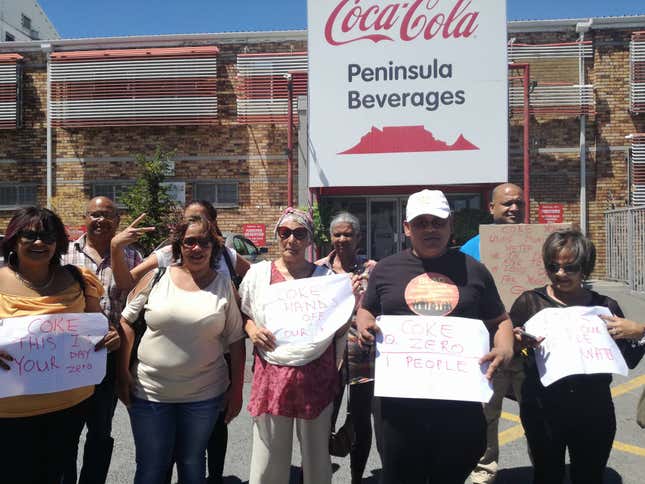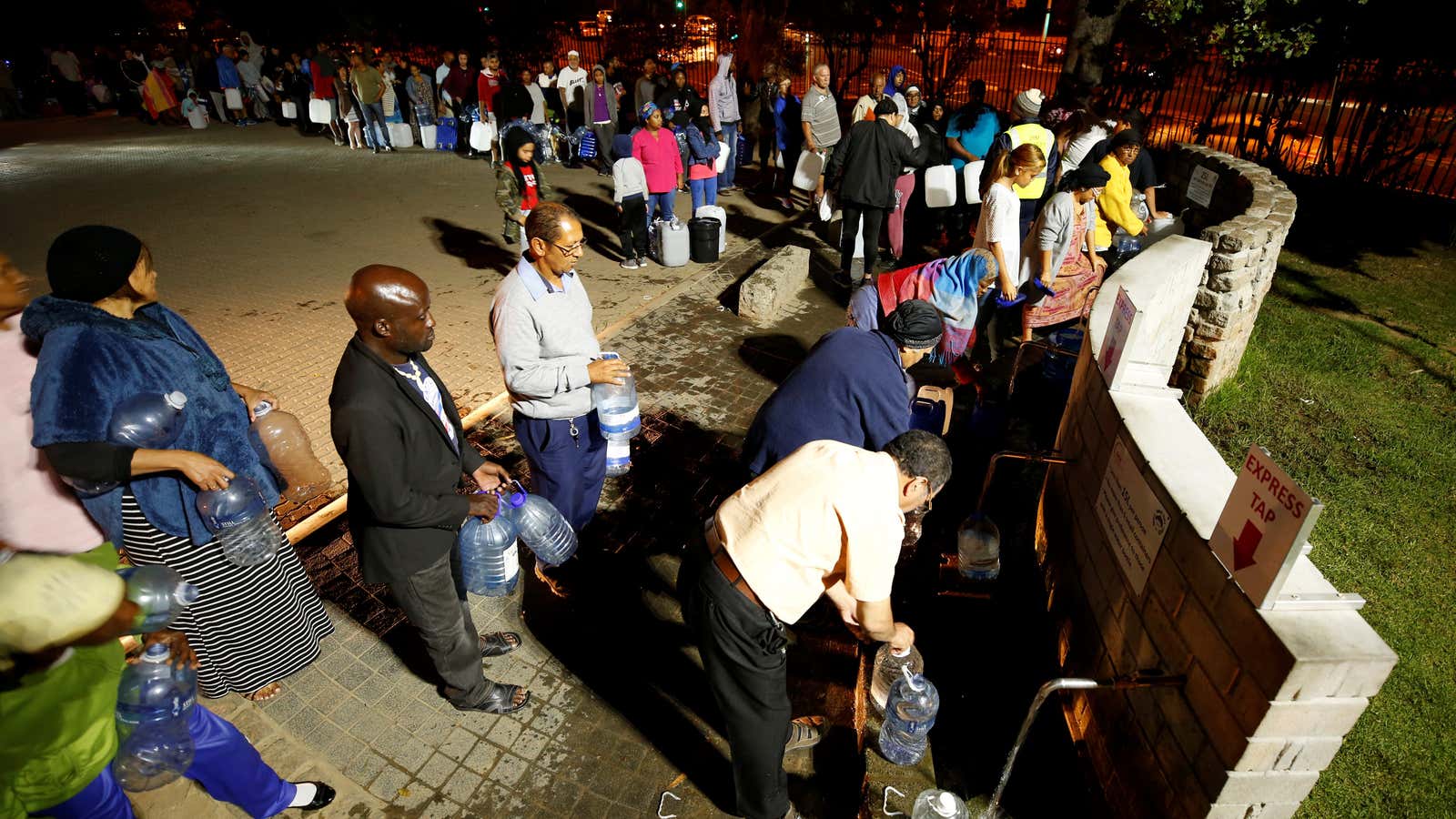The catastrophic drought that grips Cape Town is leading some residents who are at risk of seeing their taps turned off to protest the use of water by companies that consume millions of liters each day.
The Cape Town Water Crisis Coalition, an alliance of more than 70 community-based groups that represent residents across the city’s townships and surrounding farming areas, is calling on Coca-Cola Peninsula Beverages (CCPB), the local bottler, to halve its production for three months or distribute water free of charge to residents in some of the city’s poorest communities and drought-stricken provinces.
The company, which manufactures and distributes Coke products across the Western and Northern Cape, draws about 530 million liters (140 million gallons) of water annually from the city to produce soft drinks, sparkling juices and bottled water, or roughly the amount of water the four million residents of Cape Town consume collectively per day. A liter of Coke requires about two liters of water to produce.

Most of the coalition’s members cannot afford bottled water, says the group, which protested outside CCPB’s offices in Cape Town’s northern suburbs last Monday and has given the bottler a week to address its demands. They include assurances that the company’s drilling for groundwater to reduce its reliance on current supplies will not contaminate freshwater with seawater.
“Here we are in a water-scarce situation, and we find that [CCPB] is taking 1.5 to 2 million liters a day from our water supply to make their products,” Shaheed Mohamed, a member of the coalition, tells Quartz Africa. “That amounts to abuse of the crisis rather than positively contributing to measures that will make the water last a little longer. The water they have access to should be made available to the communities where water has been limited unfairly.”
The action follows calls by the coalition for South African Breweries, a unit of Anheuser-Busch InBev, to return to the municipal supply some of the 2 million liters of water from a natural spring in the Newlands section of Cape Town that the brewery uses to make beer.
SAB, which notes that the brewery sources its water exclusively from the Newlands spring and the ground and not from the city’s grid, says it returns about 1.4 million liters of recycled water per day to Cape Town for use by farms or factories. Because the city lacks access to the spring, closing the brewery would not ease the water crisis but “would have a severe impact on” workers and would deprive Cape Town of the water the brewery sends its way, says John Stenslunde, who manages the Newlands plant.
Though SAB has said it lacks the capacity to move water from springs and underground tunnels, the brewery agreed to provide access to the spring round-the-clock, and has pledged to distribute bottled water to residents free of charge in the event of Day Zero, an estimated date when water is expected to run out. It has been pushed further out to July 9.
CCPB said in a statement it has exempted bottled water in the Western Cape from price increases the company has instituted nationally and is “finalizing details” to provide drinking water in recyclable bottles to emergency sites as determined by provincial and municipal authorities. The company also has said it is working with local officials to safeguard the city’s water supply.
The companies’ use of water chafes the coalition, which notes that the city has asked residents to consume no more than 50 liters (13.2 gallons) per person per day, hiked tariffs for excessive use, and ramped up the controversial installation of devices that limit households to 350 liters per day.
Cape Town is adding springs to the municipal drinking supply “where feasible from an engineering and financial perspective,” says Xanthea Limberg, a city councilor and member of the mayoral committee for informal settlements, water and waste services and energy, who notes that the city currently draws 2.8 million liters of drinking water per day from the spring in Newlands and expects to produce 2 million more from a spring in the suburb of Oranjezicht.
Additional reporting by Zoë Schlanger
